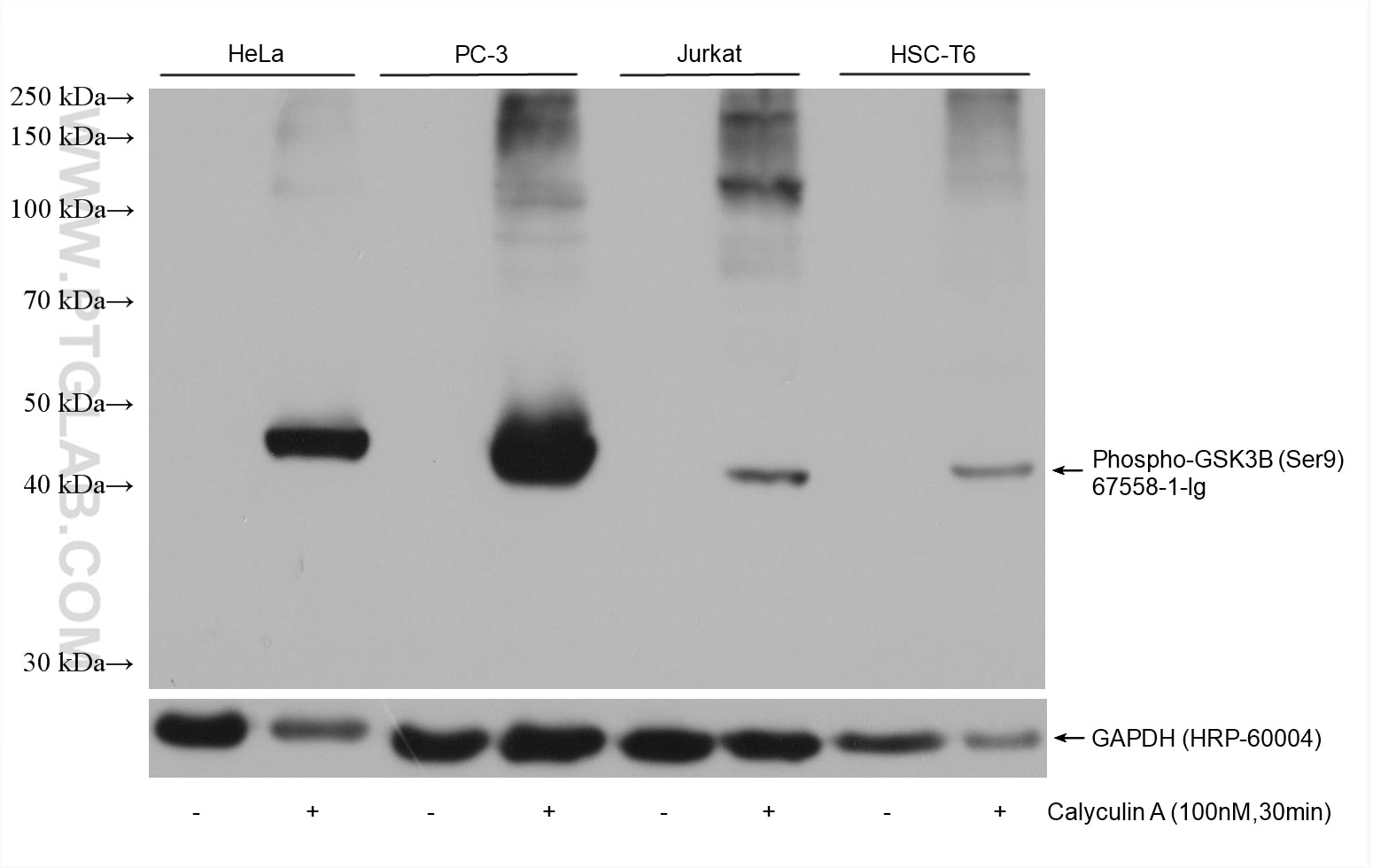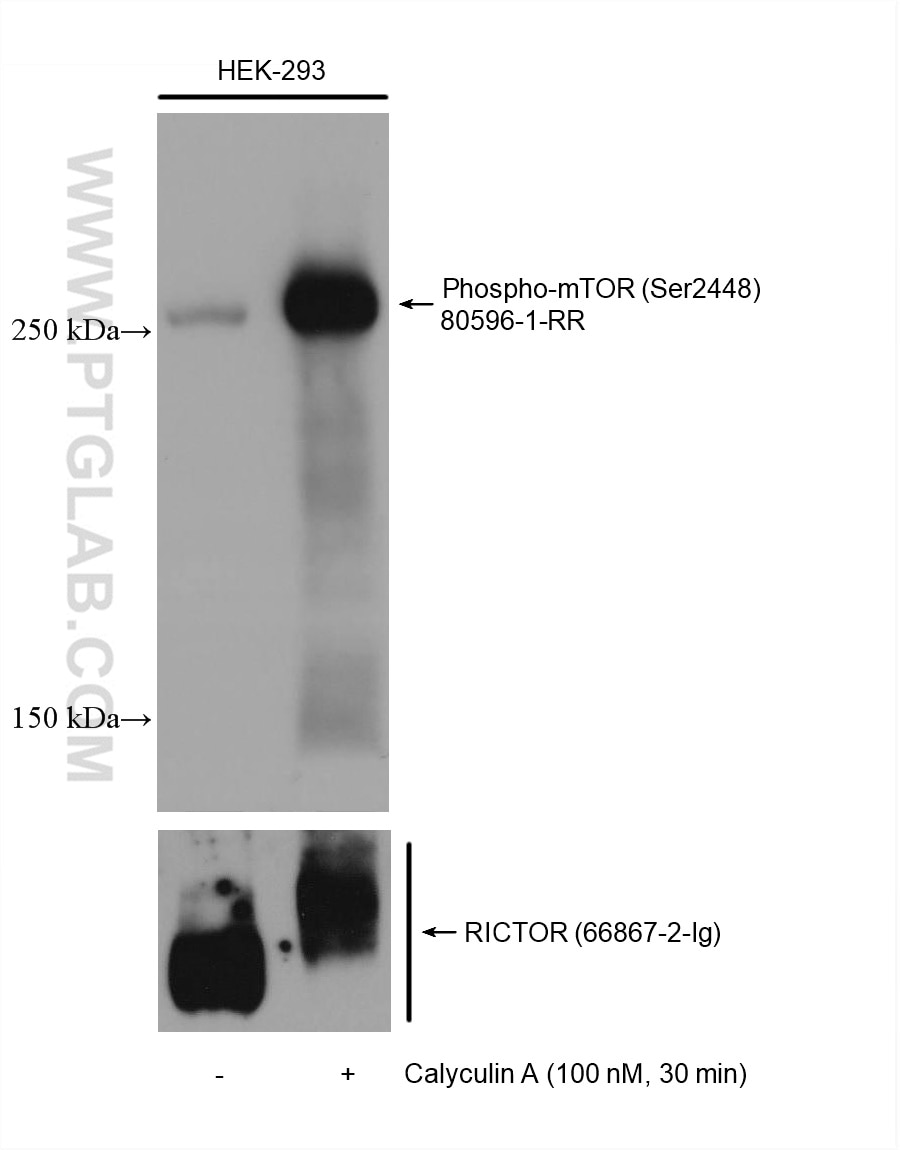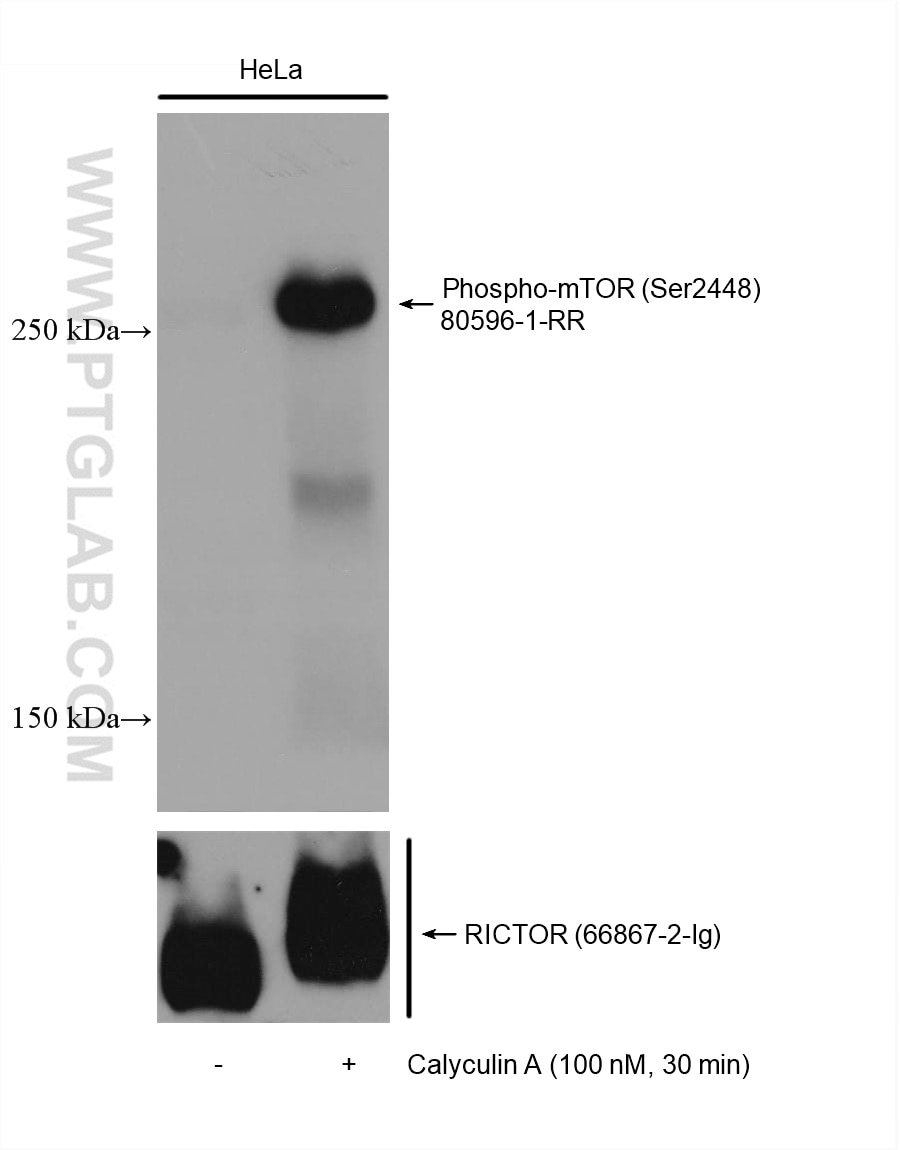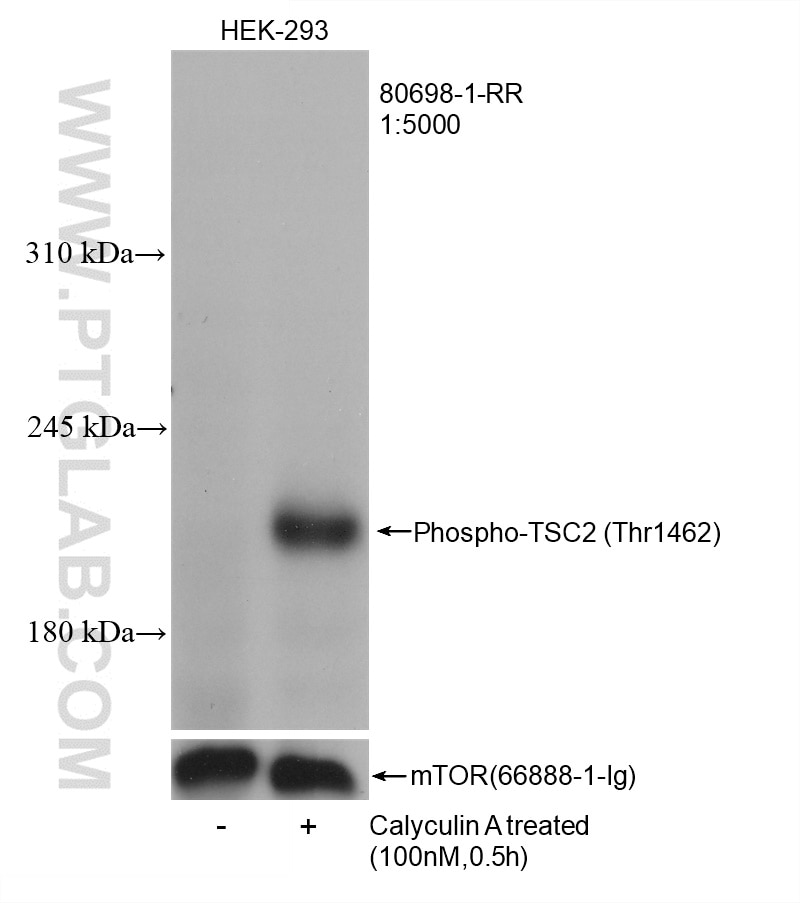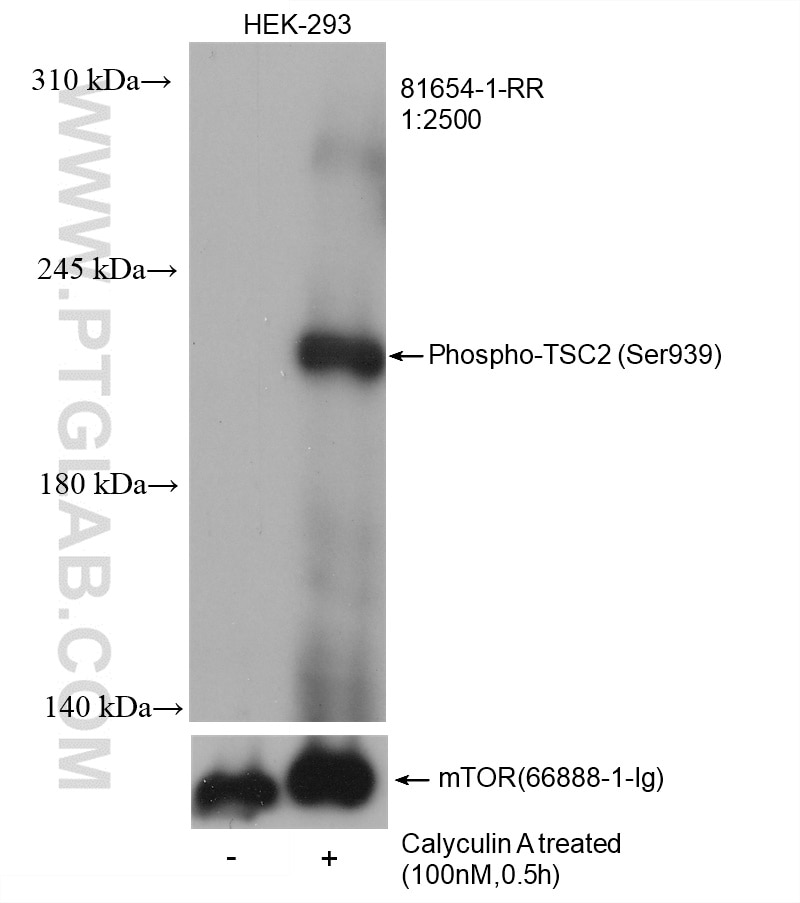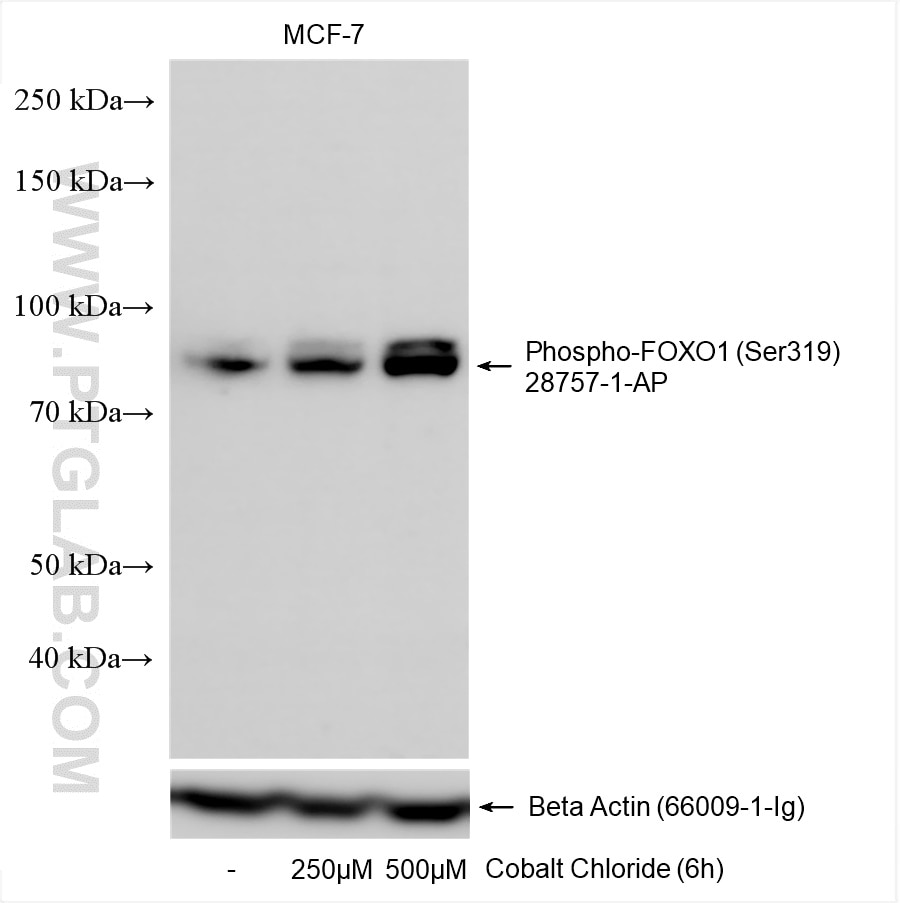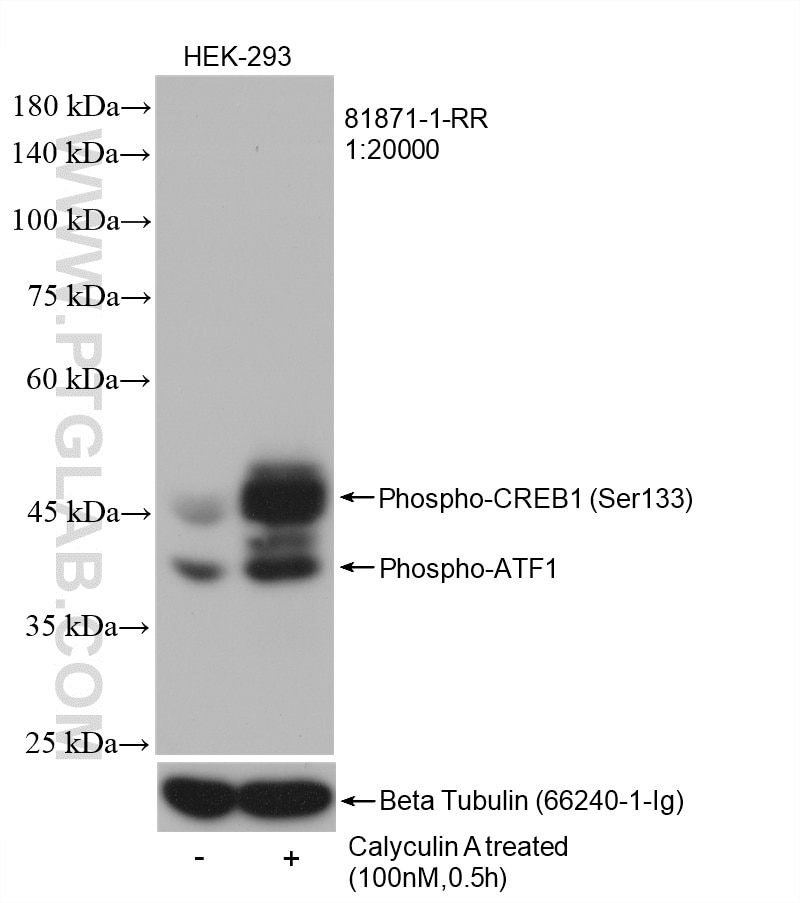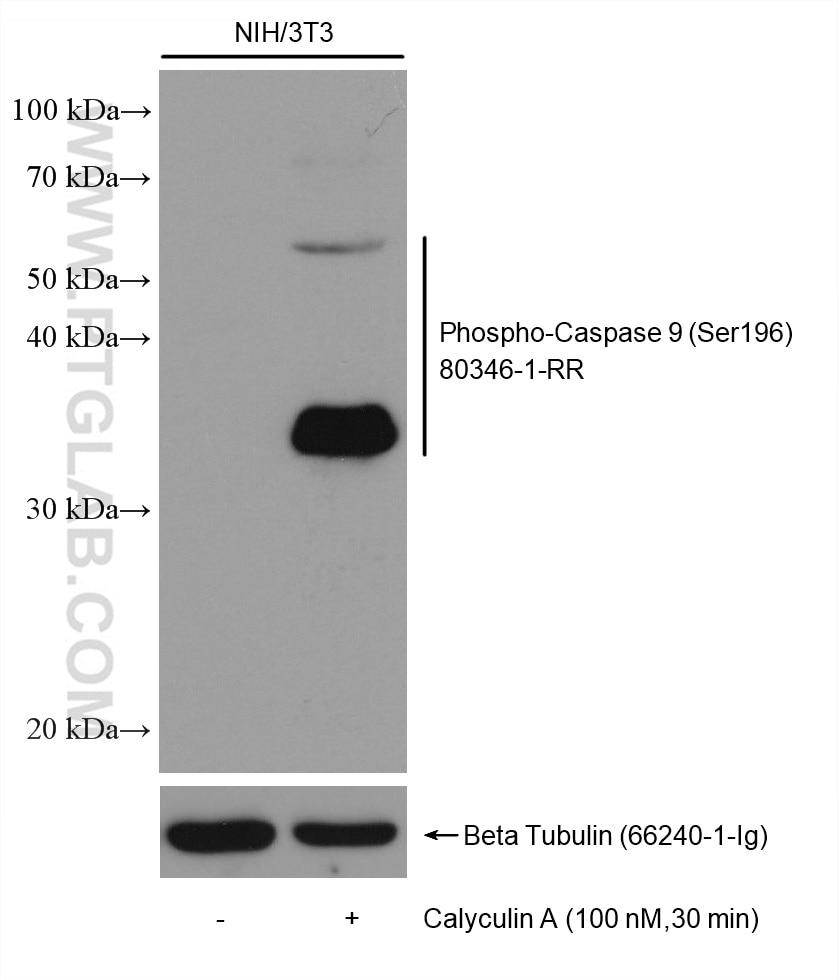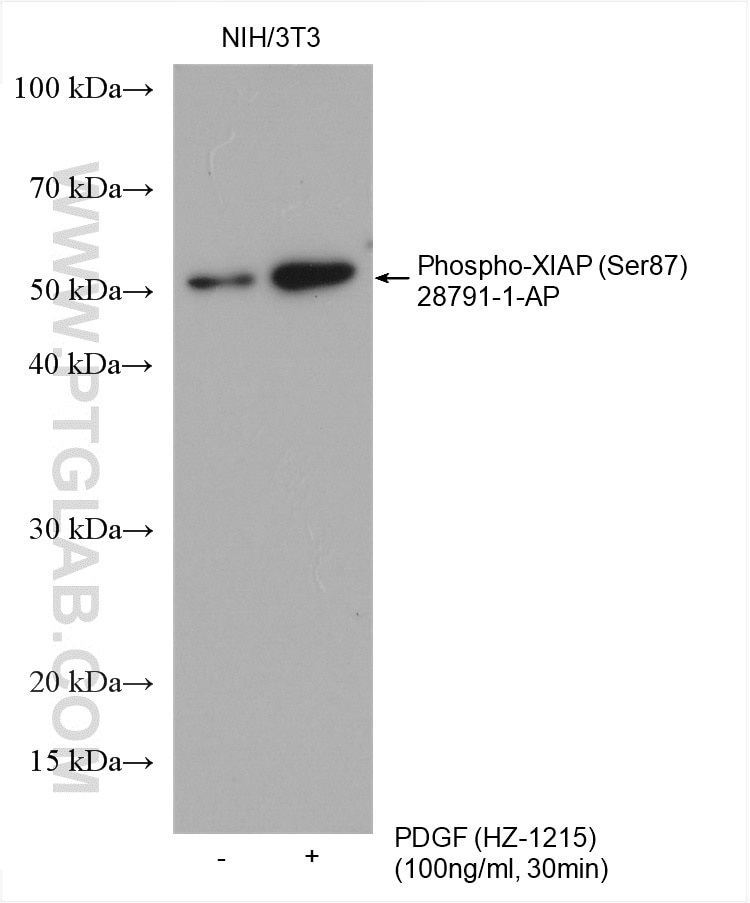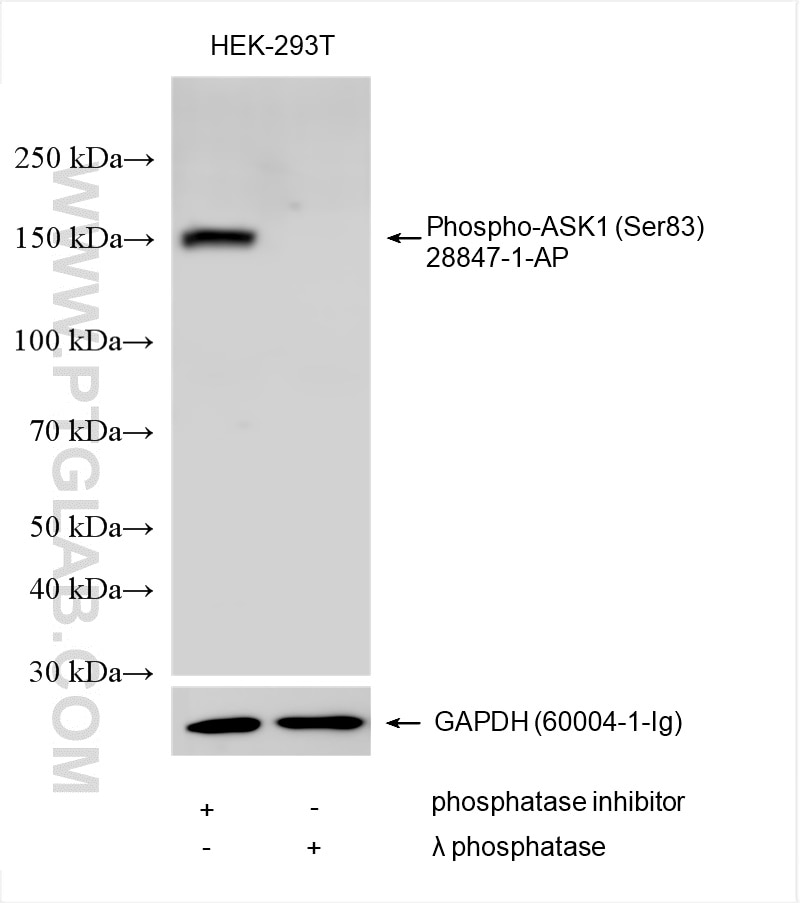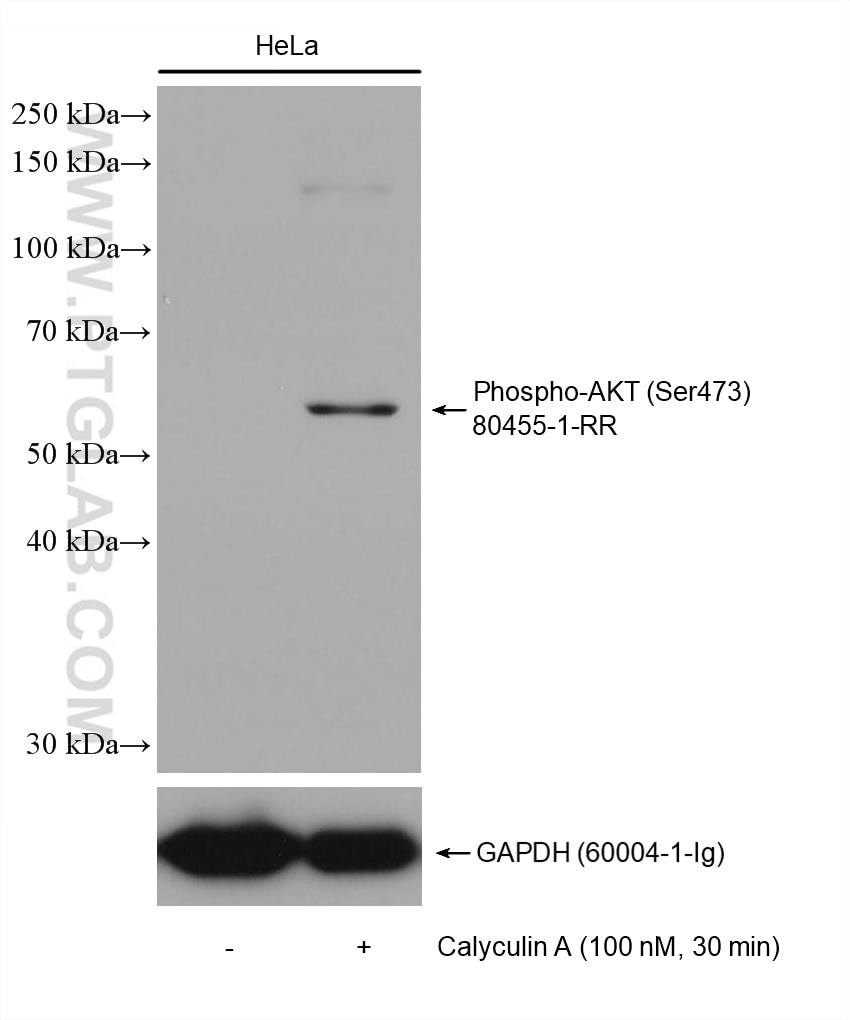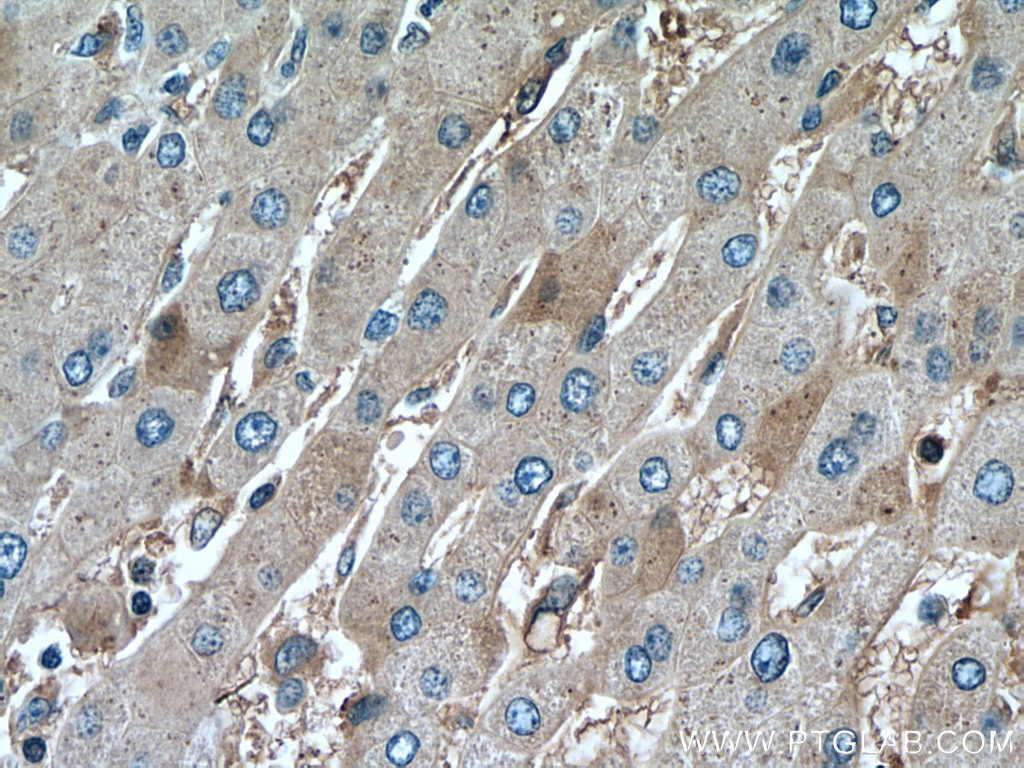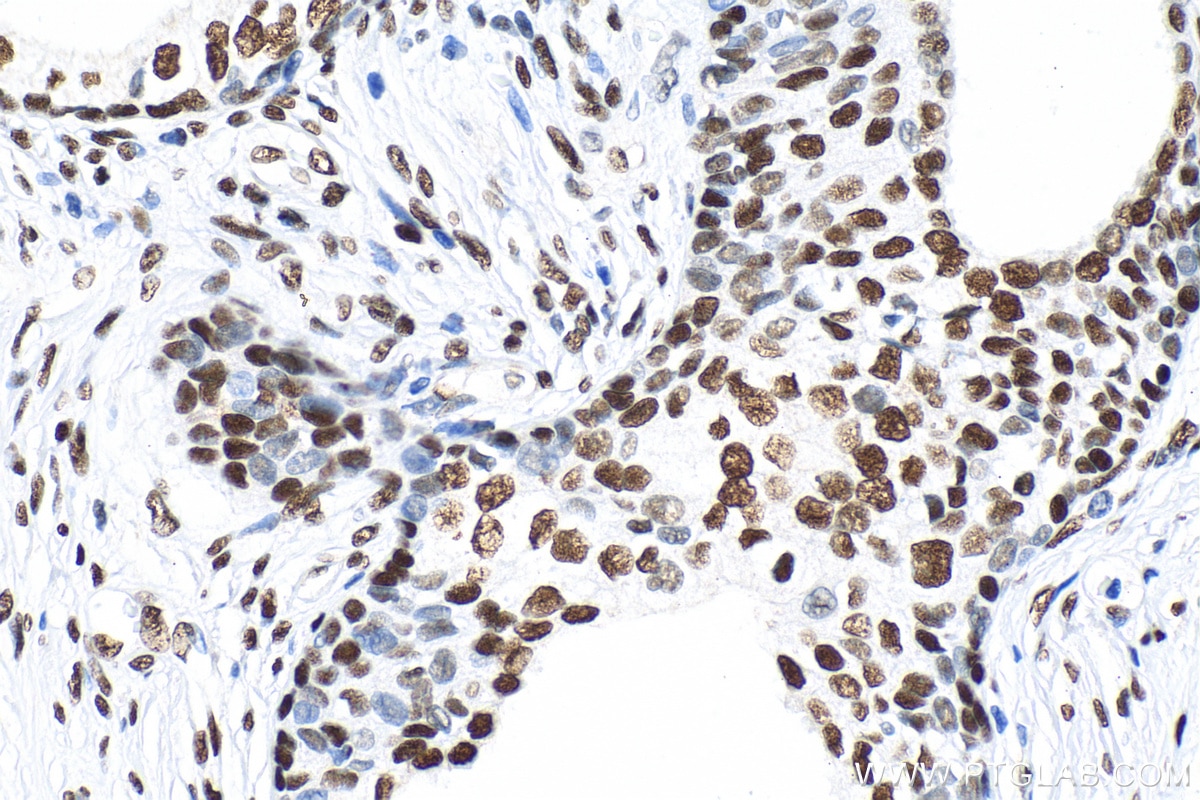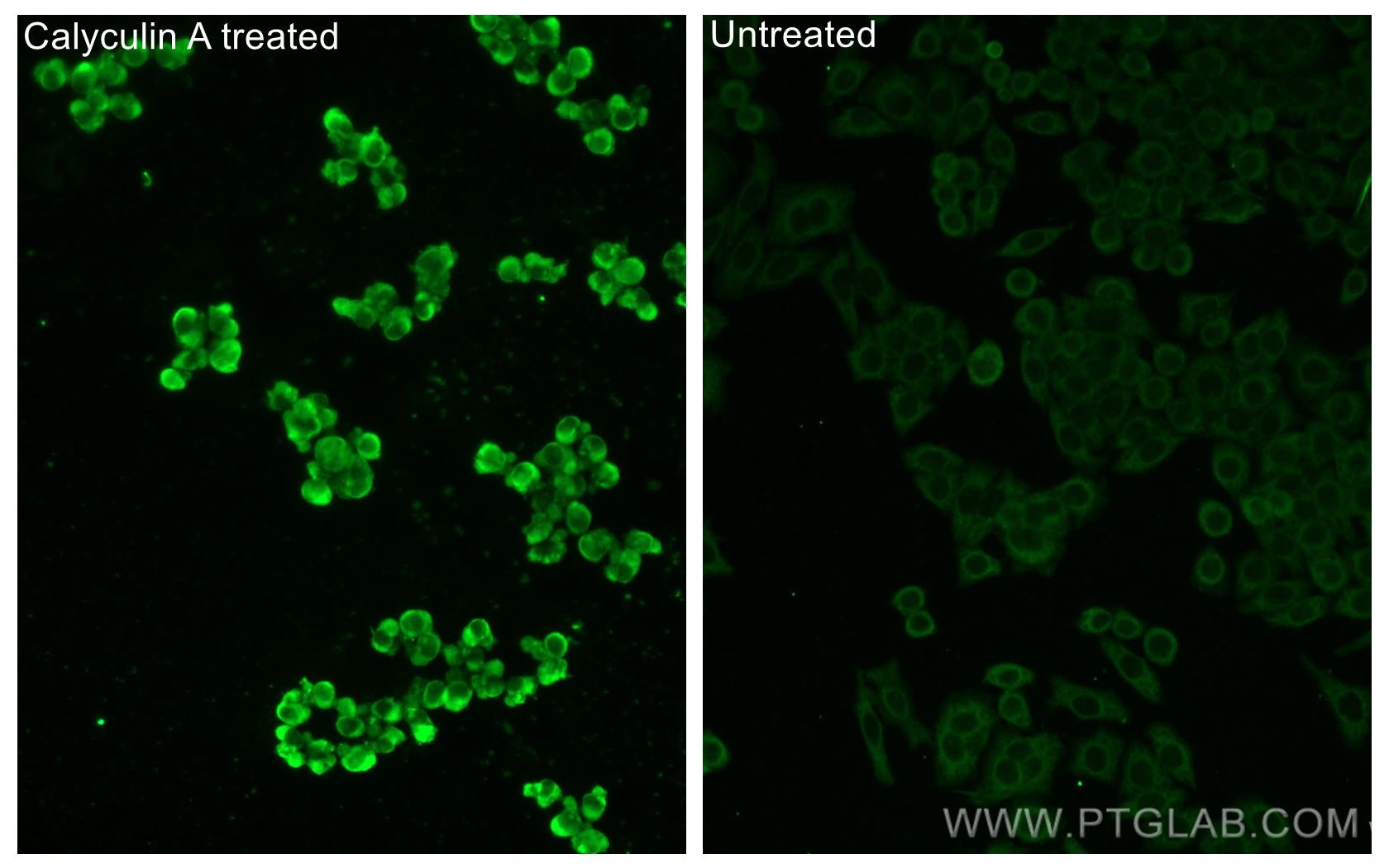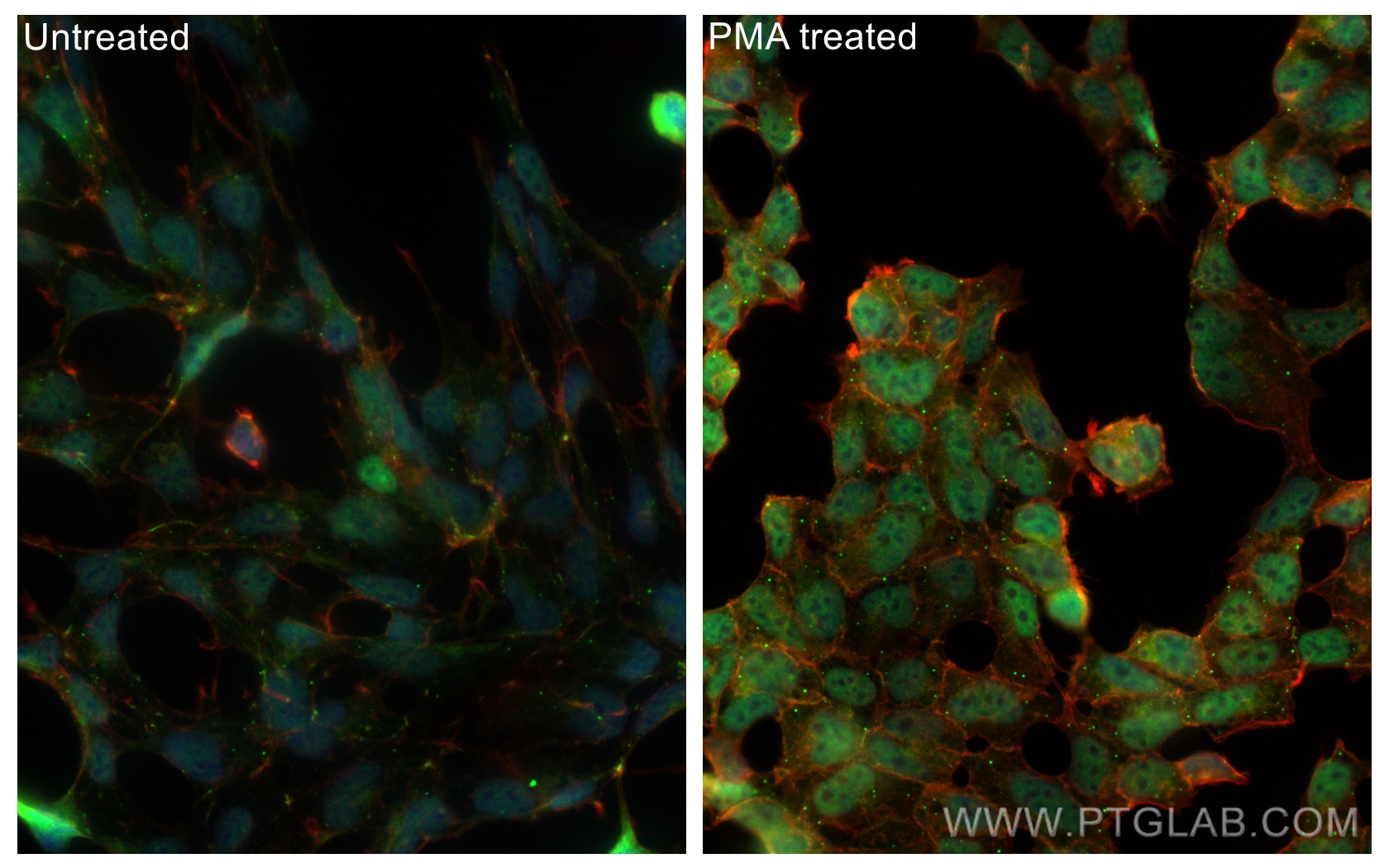AKT Substrate Expanded Antibody Kit
Host
Rabbit/Mouse
Reactivity
Target Dependent
Applications
Target Dependent
Conjugate
Unconjugated
Cat no : PK30022
Validation Data Gallery
Product Information
The AKT Substrate Expanded Antibody Kit provides a cost-effective tool for studying a broad range of proteins that are phosphorylated by AKT. Perfect for signal transduction researchers starting a new project, screening multiple prospective targets, or those who simply require less volume.
The AKT Substrate Expanded Kit contains 10 antibodies against downstream phosphorylation targets of AKT.
| Antigen | Catalog No. | Host, clonality | Tested Reactivity | Applications | Volume |
| Phospho-GSK3B (Ser9) | 67558-1-Ig | Mouse monoclonal | H | WB, IHC, IF | 20 uL |
| Phospho-mTOR (Ser2448) | 80596-1-RR | Rabbit monoclonal | H, R | WB, IF | 20 uL |
| Phospho-TSC2 (Thr1462) | 80698-1-RR | Rabbit monoclonal | H | WB | 20 uL |
| Phospho-TSC2 (Ser939) | 81654-1-RR | Rabbit monoclonal | H | WB | 20 uL |
| Phospho-FOXO1 (Ser319) | 28757-1-AP | Rabbit polyclonal | H | WB | 20 uL |
| Phospho-CREB1 (Ser133) | 81871-1-RR | Rabbit monoclonal | H | WB, IHC | 20 uL |
| Phospho-Caspase 9 (Ser196) | 80346-1-RR | Rabbit monoclonal | H, M | WB | 20 uL |
| Phospho-XIAP (Ser87) | 28791-1-AP | Rabbit polyclonal | H, M, R | WB | 20 uL |
| Phospho-ASK1 (Ser83) | 28847-1-AP | Rabbit polyclonal | H | WB | 20 uL |
| Phospho-AKT (Ser473) | 80455-1-RR | Rabbit monoclonal | H | WB | 20 uL |
Also see our 'AKT Substrate Essentials Antibody Kit' on the following page https://www.ptglab.com/products/AKT-Substrate-Essentials-Antibody-Kit-PK30021.htm。
Storage
Store at -20°C. Stable for one year from the date of receipt.
Background Information
Upon its activation, AKT phosphorylates a number of different substrates, resulting in the activation or inactivation of downstream cellular functions. The phosphorylation of GSK3B at Ser9, inhibits its activity and subsequent glycogen synthesis. Meanwhile, AKT-mediated phosphorylation of mTOR at Ser2448 results in its activation and formation of the mTORC1 complex. TSC2, an inhibitor of mTORC1 activation, is blocked through phosphorylation at Thr1462 and Ser939 residues. FOXO1, a transcription factor invovled in cell cycle arrest and apoptosis, is inhibited by AKT through phosphorylation at Ser319, which leads to its nuclear export. Pro-survival functions are also promoted through inhibiting ASK1 activity via Ser83 phosphorylation and XIAP through Ser87 phosphorylation. Finally, AKT can help to trigger the caspase cascade by phosphorylating Caspase 9 at Ser196.
Standard Protocols
Click here to view our standard protocols for various applications including WB, IP, IHC, IF, FC, and ELISA.
